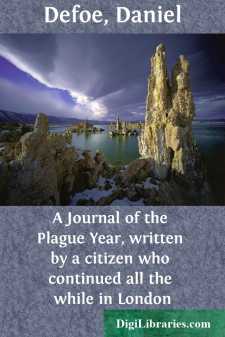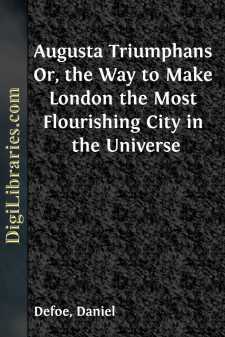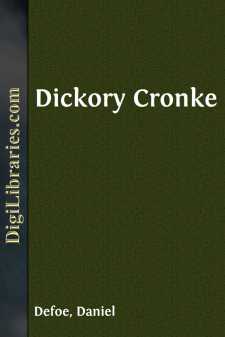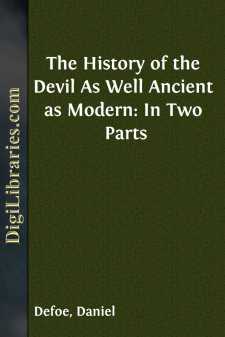Categories
- Antiques & Collectibles 13
- Architecture 36
- Art 48
- Bibles 22
- Biography & Autobiography 813
- Body, Mind & Spirit 142
- Business & Economics 28
- Children's Books 14
- Children's Fiction 11
- Computers 4
- Cooking 94
- Crafts & Hobbies 4
- Drama 346
- Education 46
- Family & Relationships 57
- Fiction 11829
- Games 19
- Gardening 17
- Health & Fitness 34
- History 1377
- House & Home 1
- Humor 147
- Juvenile Fiction 1873
- Juvenile Nonfiction 202
- Language Arts & Disciplines 88
- Law 16
- Literary Collections 686
- Literary Criticism 179
- Mathematics 13
- Medical 41
- Music 40
- Nature 179
- Non-Classifiable 1768
- Performing Arts 7
- Periodicals 1453
- Philosophy 64
- Photography 2
- Poetry 896
- Political Science 203
- Psychology 42
- Reference 154
- Religion 513
- Science 126
- Self-Help 84
- Social Science 81
- Sports & Recreation 34
- Study Aids 3
- Technology & Engineering 59
- Transportation 23
- Travel 463
- True Crime 29
A Journal of the Plague Year, written by a citizen who continued all the while in London
by: Daniel Defoe
Description:
Excerpt
It was about the beginning of September, 1664, that I, among the rest of my neighbours, heard in ordinary discourse that the plague was returned again in Holland; for it had been very violent there, and particularly at Amsterdam and Rotterdam, in the year 1663, whither, they say, it was brought, some said from Italy, others from the Levant, among some goods which were brought home by their Turkey fleet; others said it was brought from Candia; others from Cyprus. It mattered not from whence it came; but all agreed it was come into Holland again.
We had no such thing as printed newspapers in those days to spread rumours and reports of things, and to improve them by the invention of men, as I have lived to see practised since. But such things as these were gathered from the letters of merchants and others who corresponded abroad, and from them was handed about by word of mouth only; so that things did not spread instantly over the whole nation, as they do now. But it seems that the Government had a true account of it, and several councils were held about ways to prevent its coming over; but all was kept very private. Hence it was that this rumour died off again, and people began to forget it as a thing we were very little concerned in, and that we hoped was not true; till the latter end of November or the beginning of December 1664 when two men, said to be Frenchmen, died of the plague in Long Acre, or rather at the upper end of Drury Lane. The family they were in endeavoured to conceal it as much as possible, but as it had gotten some vent in the discourse of the neighbourhood, the Secretaries of State got knowledge of it; and concerning themselves to inquire about it, in order to be certain of the truth, two physicians and a surgeon were ordered to go to the house and make inspection. This they did; and finding evident tokens of the sickness upon both the bodies that were dead, they gave their opinions publicly that they died of the plague. Whereupon it was given in to the parish clerk, and he also returned them to the Hall; and it was printed in the weekly bill of mortality in the usual manner, thus—
Plague, 2. Parishes infected, 1.
The people showed a great concern at this, and began to be alarmed all over the town, and the more, because in the last week in December 1664 another man died in the same house, and of the same distemper. And then we were easy again for about six weeks, when none having died with any marks of infection, it was said the distemper was gone; but after that, I think it was about the 12th of February, another died in another house, but in the same parish and in the same manner.
This turned the people's eyes pretty much towards that end of the town, and the weekly bills showing an increase of burials in St Giles's parish more than usual, it began to be suspected that the plague was among the people at that end of the town, and that many had died of it, though they had taken care to keep it as much from the knowledge of the public as possible. This possessed the heads of the people very much, and few cared to go through Drury Lane, or the other streets suspected, unless they had extraordinary business that obliged them to it
This increase of the bills stood thus: the usual number of burials in a week, in the parishes of St Giles-in-the-Fields and St Andrew's, Holborn, were from twelve to seventeen or nineteen each, few more or less; but from the time that the plague first began in St Giles's parish, it was observed that the ordinary burials increased in number considerably....












